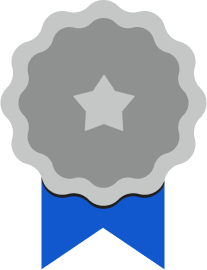Deepeshkumar Malviya
成为会员时间:2021
白银联赛
2010 积分
成为会员时间:2021

Gen AI: Beyond the Chatbot is the first course of the Gen AI Leader learning path and has no prerequisites. This course aims to move beyond the basic understanding of chatbots to explore the true potential of generative AI for your organization. You explore concepts like foundation models and prompt engineering, which are crucial for leveraging the power of gen AI. The course also guides you through important considerations you should make when developing a successful gen AI strategy for your organization.
This course takes a real-world approach to the ML Workflow through a case study. An ML team faces several ML business requirements and use cases. The team must understand the tools required for data management and governance and consider the best approach for data preprocessing. The team is presented with three options to build ML models for two use cases. The course explains why they would use AutoML, BigQuery ML, or custom training to achieve their objectives.
This course covers building ML models with TensorFlow and Keras, improving the accuracy of ML models and writing ML models for scaled use.
This course introduces participants to MLOps tools and best practices for deploying, evaluating, monitoring and operating production ML systems on Google Cloud. MLOps is a discipline focused on the deployment, testing, monitoring, and automation of ML systems in production. Machine Learning Engineering professionals use tools for continuous improvement and evaluation of deployed models. They work with (or can be) Data Scientists, who develop models, to enable velocity and rigor in deploying the best performing models.
This course covers how to implement the various flavors of production ML systems— static, dynamic, and continuous training; static and dynamic inference; and batch and online processing. You delve into TensorFlow abstraction levels, the various options for doing distributed training, and how to write distributed training models with custom estimators. This is the second course of the Advanced Machine Learning on Google Cloud series. After completing this course, enroll in the Image Understanding with TensorFlow on Google Cloud course.
完成使用 BigQuery ML 為預測模型進行資料工程技能徽章中階課程, 即可證明自己具備下列知識與技能:運用 Dataprep by Trifacta 建構連至 BigQuery 的資料轉換 pipeline; 使用 Cloud Storage、Dataflow 和 BigQuery 建構「擷取、轉換及載入」(ETL) 工作負載, 以及使用 BigQuery ML 建構機器學習模型。技能 徽章是 Google Cloud 核發的獨家數位徽章, 用於肯定您在 Google Cloud 產品和服務方面的精熟技能, 代表您已通過測驗,能在互動式實作環境中應用相關知識。完成 這個課程及結業評量挑戰實驗室,即可取得數位徽章 並與他人分享。
The third course in this course series is Achieving Advanced Insights with BigQuery. Here we will build on your growing knowledge of SQL as we dive into advanced functions and how to break apart a complex query into manageable steps. We will cover the internal architecture of BigQuery (column-based sharded storage) and advanced SQL topics like nested and repeated fields through the use of Arrays and Structs. Lastly we will dive into optimizing your queries for performance and how you can secure your data through authorized views. After completing this course, enroll in the Applying Machine Learning to your Data with Google Cloud course.
This course introduces the Google Cloud big data and machine learning products and services that support the data-to-AI lifecycle. It explores the processes, challenges, and benefits of building a big data pipeline and machine learning models with Vertex AI on Google Cloud.